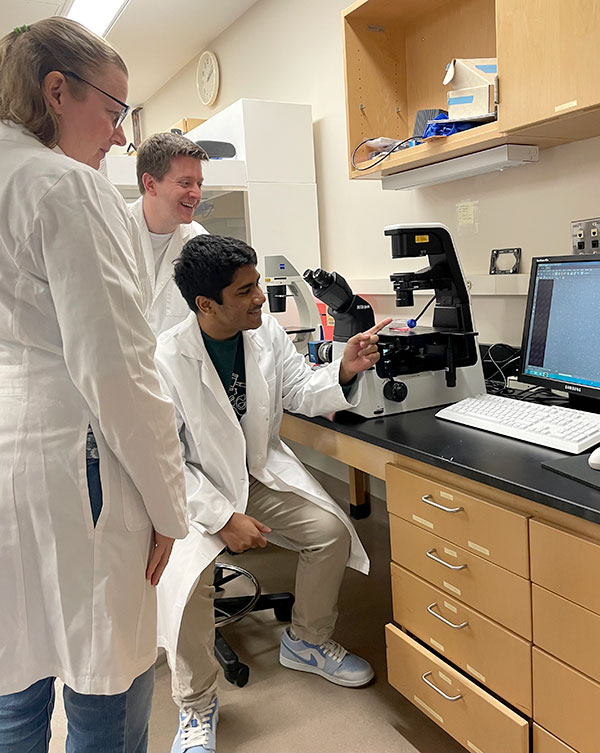
Student Works for a Stronger Muslim Community at Duke and Beyond
Rahman, who also served as community liaison for the Black Muslim Coalition, learned that while many differences exist among even people of different religions and cultures, once people connect and begin to communicate they learn how much they have in common.
“Finding the middle ground between our unique perspectives, as well as what connects us, is really important and that was the goal of those dinners,” said the Benjamin N. Duke Scholar and biology major. These scholars are students who excel academically and demonstrate commitment to civic engagement.

In addition to his work within Duke’s Muslim community, Rahman co-founded Hearts for Hope in Durham, which provides blood-pressure screenings, food, clothing and other resources to the unhoused, often getting up in the wee hours of the morning to help those in need.
Naim Wright, who co-founded the organization with Rahman, said he often would go into downtown Durham in the early hours of winter mornings to provide services.
“He gladly journeys out to provide compassionate support to those who need it in the field but would just as eagerly write grant applications to our university and secure partnerships with community organizations that provided us with thousands of dollars of funding with which to accomplish our mission. In this way, he captures the truest essence of what it means to serve,” Wright said.
Rahman also helped to organize the Muslim Interscholastic Tournament to Duke last August, bringing together more than 800 high schoolers from around the country who compete in a variety of categories. These included knowledge of the Quran, various artistic endeavors such as fashion design and digital art, writing and oratory, and even sporting events.
While in high school, Rahman took part in some community service projects but was not involved in the leadership aspects. It wasn’t until coming to Duke that he learned what leadership means.
“I've come to realize that leadership is less about directing people as much as it is about inviting other people to take the stage and lead their visions and working with them to make it happen,” said Rahman, who added that successful leaders know how to delegate.
At a time when there is so much conflict, Rahman said it’s easy to become discouraged and to feel powerless.
“But I think the important thing is being willing to start a conversation and trying to hear other people's perspectives on campus,” he said. “I think there have been efforts to go about this and maybe the answers won't be clear until later.
“But as long as we're doing this work of reaching across the divide, I think we'll get closer to reaching some sort of point of comfort or peace.”